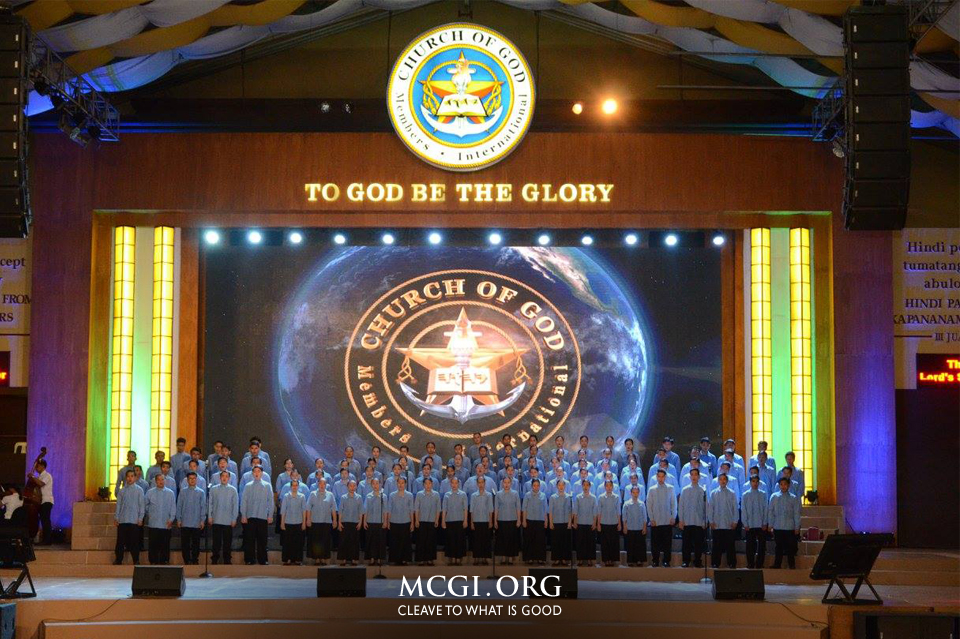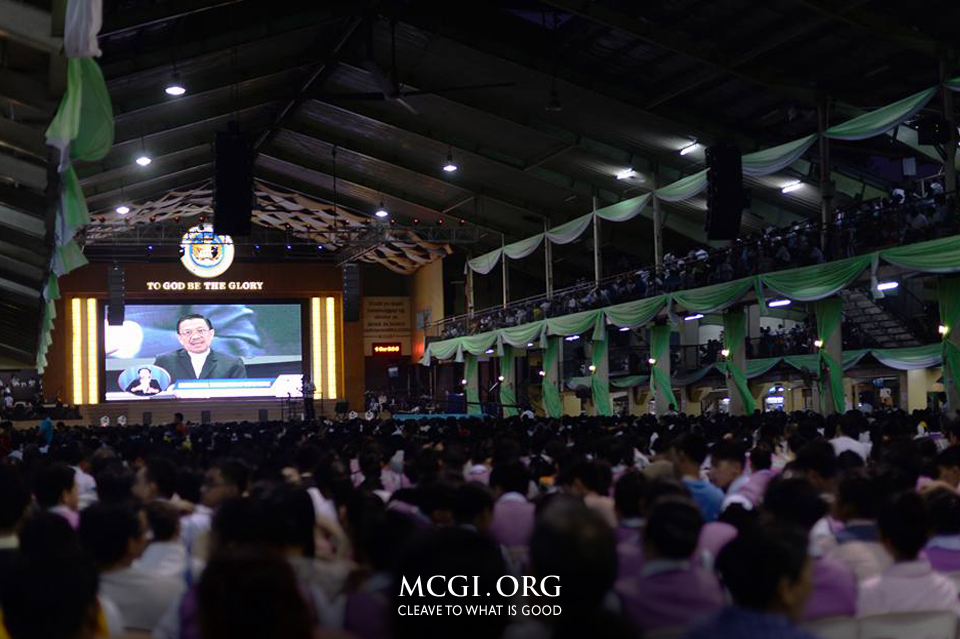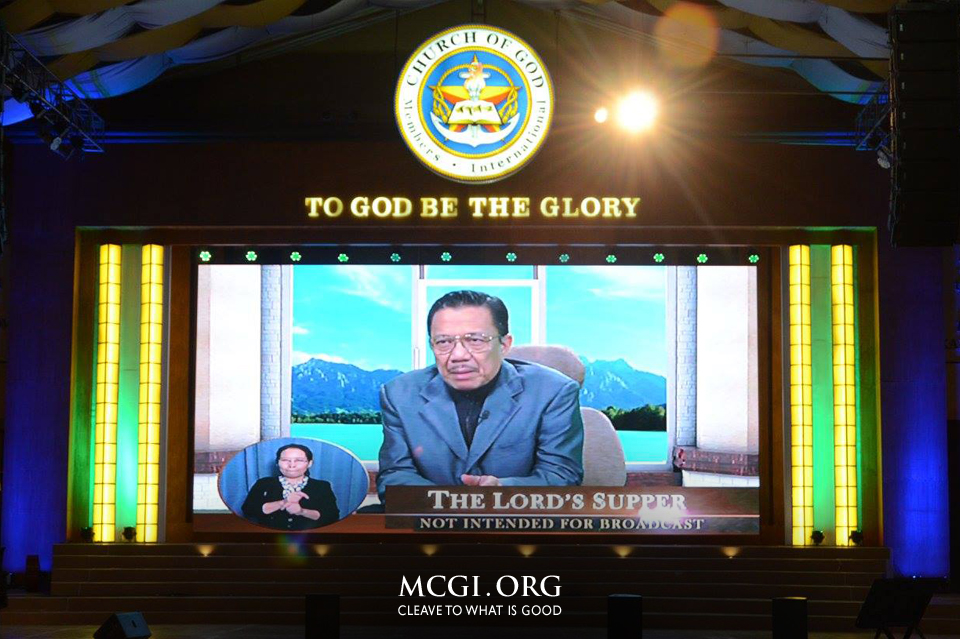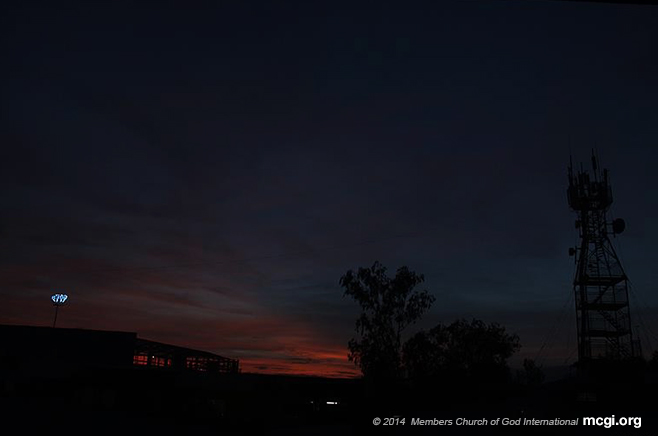New Wisdom Unravels on MCGI’s Lord’s Supper This March

New wisdom about the Lord’s Supper will be revealed on March 29, as Members Church of God International (MCGI) prepares to celebrate the occasion on the same day, God willing. Bro. Eli Soriano, Overall Servant to MCGI, will preside its discussion.
This year, the celebration falls on the 29th of March at sundown, to conform to the timing that the Lord Jesus Christ sat down for the Passover one day ahead, since a new day in Israel begins as the sun sets.
The sunset of March 29 is the 13th of Nisan in the Hebrew calendar, a day before the Feast of the Passover is celebrated, which is on the 15th of Nisan.
The Lord’s Supper will be marked with the offering of songs and prayers, then climaxes to Bro. Eli’s discussion of a topic for this year’s memorial.
MCGI started celebrating the Lord’s Supper on April 16, 2003.
The Essence of Remembering the Sacrifices of Christ

In the past observance of the Lord’s Supper, Bro. Eli discussed the biblical importance of remembering the sacrifice of the Lord Jesus Christ 2,000 years ago.
For the past 15 years, the international televangelist had made it clear that the Lord’s Supper is one of the many misunderstood and misinterpreted narratives in the Bible, brought about by the lack of understanding in many preachers.
One of the things that Bro. Eli talked about in previous celebrations of the Lord’s Supper is that the Lord Jesus Christ celebrated it with his Apostles one day ahead of the Feast of the Passover, a holy commemoration in Israel.
The Significance of the Timing of the Commemoration

The preacher stated that the earlier timing of the Lord’s Supper is significant because on the day that the Israelites were killing the Passover lamb, the Lord Jesus Christ was suffering at the hands of Roman soldiers when he was turned over by the Sanhedrin after a quick trial.
This had fulfilled the prophecy about him in Isaiah 53:7: “He was oppressed, and he was afflicted, yet he opened not his mouth: he is brought as a lamb to the slaughter, and as a sheep before her shearers is dumb, so he openeth not his mouth.”
Meanwhile, the Feast of the Passover recounts God’s salvation of His people from four centuries of bondage in ancient Egypt. The book of Exodus tells that after the Israelites suffered oppression, slavery and hard labor at the hands of the Egyptians, they were finally freed when a host of catastrophic plagues punished their masters.
The river, other bodies of water, even the vessels, ran with blood (Exodus 7:17-21); the land was infested with frogs (Exodus 8:2-6), man and beast suffered from lice (Exodus 8:16-17) and boils (Exodus 9:8-10); flies (Exodus 8:21-24) and locusts (Exodus 10:4-15) swarmed the region; an epidemic killed all cattle (Exodus 9:3-7); hail mingled with fire rained on and smote the land (Exodus 9:18-25); and Egypt was plunged in darkness (Exodus 10:21-23).
The last plague recorded in Exodus 12:12,29 forced the king of Egypt to free the Hebrew slaves led by Moses. The death of all Egyptian firstborns, both man and cattle, resulted in a great cry throughout Egypt (Exodus 12:30). Even the pharaoh’s firstborn son died.
On the night of their escape, the Israelites ate a meal of an unblemished lamb roasted in fire, unleavened bread, and some bitter herbs. The blood of the slain lamb was brushed upon the side and upper door posts of their houses, which was the sign for the last plague, the plague of death, to “pass over” theirs and spare their firstborns. This is how the Feast of the Passover got its name.
In many prophecies in the Old Testament and several references in the New Testament, Christ is the Lamb of God. In Jewish religious custom since Abraham, an unblemished lamb is offered for the atonement of sins. This is why the Lord Jesus Christ ate supper a day before the Feast of the Passover so that his suffering and death would coincide with the killing of the paschal lambs throughout Israel.
Bro. Eli had hinted before that the killing of the Passover lambs is a symbolic act that represents the true story and real message behind it, which is the sacrifice of Jesus Christ, who according to John the Baptist in John 1:29 is “the Lamb of God, which taketh away the sin of the world.”
Other topics discussed in the previous years encompassed the spiritual meaning of the objects associated with the Lord’s Supper, such as the lamb, the cup where the Apostles drank, the bread they ate, the washing of the feet, and all the events and conversations that took place.
Written by: Cecile I. Vizcaya






